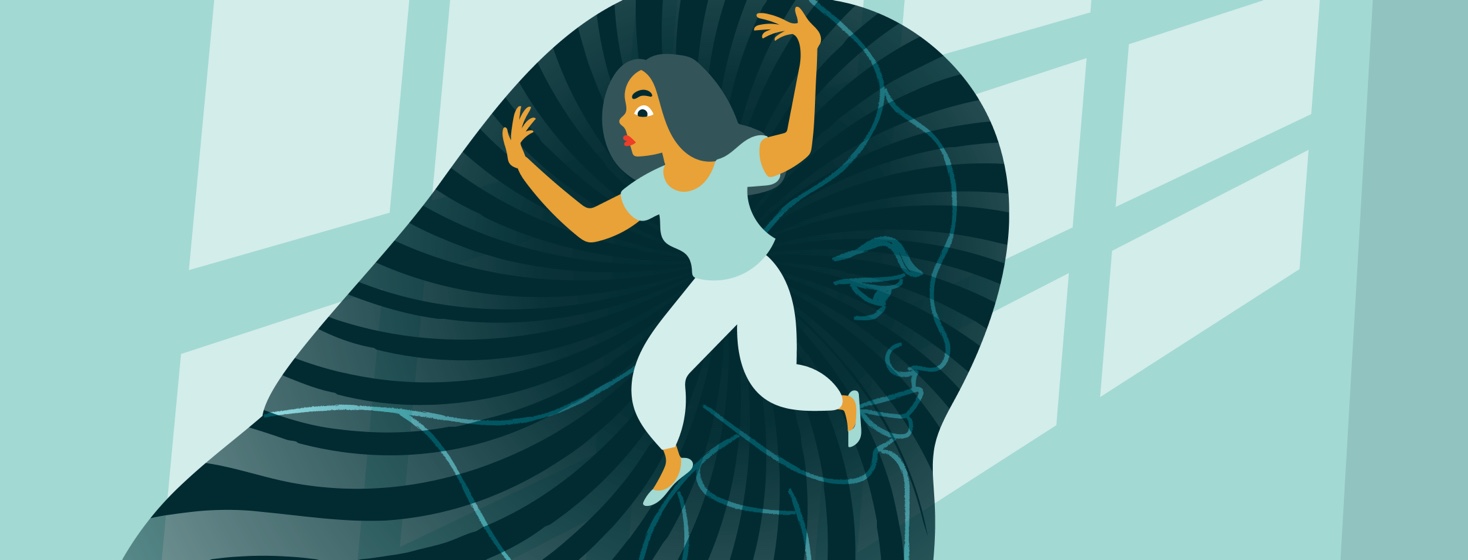Getting Help
One thing I wish I had understood earlier in my cancer journey (and life in general) is it is OK to not be OK. I've always grown up with the mentality to shake it off or "rub some dirt in it and you'll be OK." When I was diagnosed and then had my subsequent surgery, I felt like I had to be strong. I had to be strong for myself, for my friends, and for my family.
I tried really, REALLY hard to be strong and take all the pain, fear, and anger in stride. And I was doing a great job until I completely broke under the pressure.
My mental health and the impact of cancer
Over the last two years I definitely had tearful moments, and days that I let myself feel all my emotions, but I generally kept everything in check. But something about the summer of 2021 brought about my breaking point.
Maybe it was my 2nd Cancerversary or the pandemic that felt like it would never end. Maybe it was seeing my latest set of medical bills. Maybe it was the absolute mental fatigue of trying to balance my cancer life and non-cancer life.
Ultimately a culmination of things had me spending every lunch break in my car sobbing, countless afternoons staring blankly at the ceiling and pulling more and more into myself while shutting everyone else out. I was very good at parroting "I'm fine!" when anyone asked.
But I wasn't fine. I felt like I was unraveling and couldn't do anything to stop it.
The courage to ask for help
After almost a month of feeling like this, I finally got the courage to ask for a referral to a psychologist. I wasn't sure what result I was after, or even if there was actually something wrong, but I knew I would regret it if I didn't seek help.
Due to COVID precautions, I met my psychologist over Zoom. We spent almost two hours talking about all sorts of things. I admitted how I had been feeling. That I was struggling to the point it was impacting my daily life; she validated every concern and emotion.
By the end, she told me that there was nothing "wrong" with me; there was nothing wrong with giving my brain a little extra help in dealing with everything I was going through. So we decided to do just that, give my brain a little assistance and hopefully get me on track to feeling better.
Managing my mental health with bladder cancer
I began a regimen of medication, counseling, and behavioral therapy. It felt so strange being diagnosed with depression and actually picking up my prescription the first time. After two months of taking my medication and doing all the counseling and therapy, I am actually noticing a big difference. I know there is still much work to be done, along with trial and error to get the right dosing, but at least it's a start.
I'm happy to no longer spend lunch crying.
Life with cancer makes it harder
Life is really hard and cancer makes it even harder. I think every cancer patient would benefit from at least meeting with a counselor from time to time. If you are struggling, ask for a psychology referral. Don't let depression, anxiety, and the mental stress of fighting this disease go unchecked.
There will always be really tough days with cancer, but the goal should always be to have more good days than bad.

Join the conversation